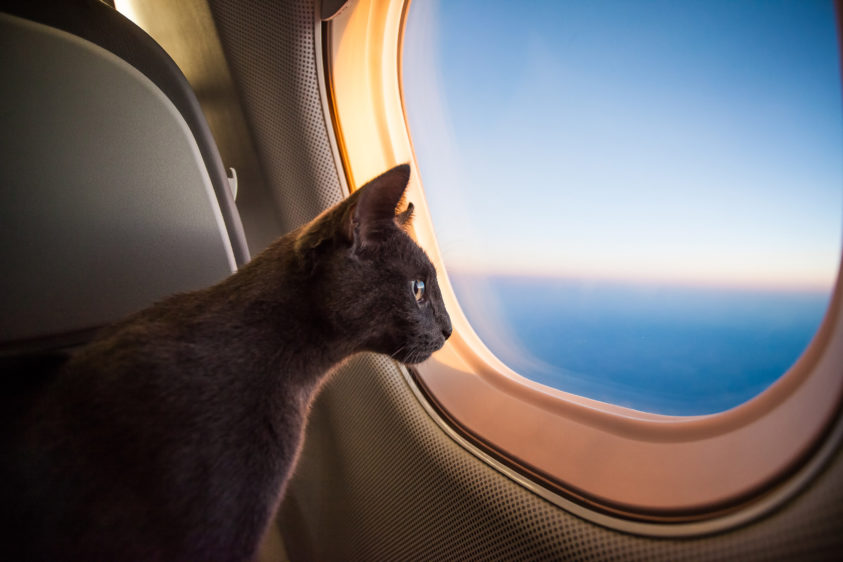Remember how, in school, the whole class got punished because of one or two bad actors? Major airlines are tightening policies on bringing animals on board—in part, at least, because of situations such as the one United Airlines faced at Newark Liberty International Airport (EWR) recently. A woman tried to board a United flight with a peacock. She described him as her emotional-support animal.
United said no. The peacock, whose name is Dexter, became a social media star…or villain, take your pick. A few days later, United announced its new policy. From March 1 onward, customers traveling with an emotional support animal “must provide a veterinary health form documenting the health and vaccination records for the animal, as well as confirming that the animal has appropriate behavioral training.” Currently, only a letter from a health professional and 48 hours’ advance notice are required.
Woman arrives with an “emotional support peacock” at Newark Airport. United Airlines allegedly refused to let the woman board the aircraft with her peacock. https://t.co/1WYMoFOUNs pic.twitter.com/H3guu25Frg
— ABC News (@ABC) January 31, 2018
Delta Air Lines’ more restrictive rule on animals also goes into effect March 1. In addition to the previous mandate for a doctor’s or licensed health professional’s letter, it now requires proof of health or vaccinations. too. But these new guidelines go a step further. They call for “a signed document” confirming that the animal will behave on board. “These measures are intended to help ensure that those customers traveling with a trained service animal or support animal will no longer be at risk of untrained pets attacking their working animal,” the airline said in a press release announcing the change.
Delta carries approximately 700 service or support animals daily—nearly 250,000 annually. “Customers have attempted to fly with comfort turkeys, gliding possums known as sugar gliders, snakes, spiders and more,” the company says, resulting in an 84 percent increase in animal incidents in the last two years. The worst was the mauling of a passenger by a large dog on a flight to San Diego last summer.
According to The New York Times, “The trouble started when pet owners realized they could game the system, because airlines did not require much proof of medical need. By claiming one, people could bring an animal on board without putting it in a carry-on bag and without paying a fee that typically runs $125.” Dog vests reading “emotional support” can be purchased for $30 on Amazon, and online therapists are reportedly willing to certify emotional need.
That is terrible news to hear that #SpiritAirlines made young adult flush hamster down the toilet! https://t.co/yvOKCu7qpT
— Laurie (@MoSassy10) February 8, 2018
Perhaps it is time to consider the animals’ needs. A 21-year-old college student told the Miami Herald this week she flushed her emotional support hamster named Pebbles down an airport toilet after Spirit Airlines refused to let her bring her pet on the plane. She claimed a Spirit employee suggested she either flush Pebbles or free him. The young women said she was considering legal action against Spirit for “pressuring her into making an anguished decision with a pet certified by her doctor as an emotional support animal.”
An airline spokesperson denied any such suggestions were made.




